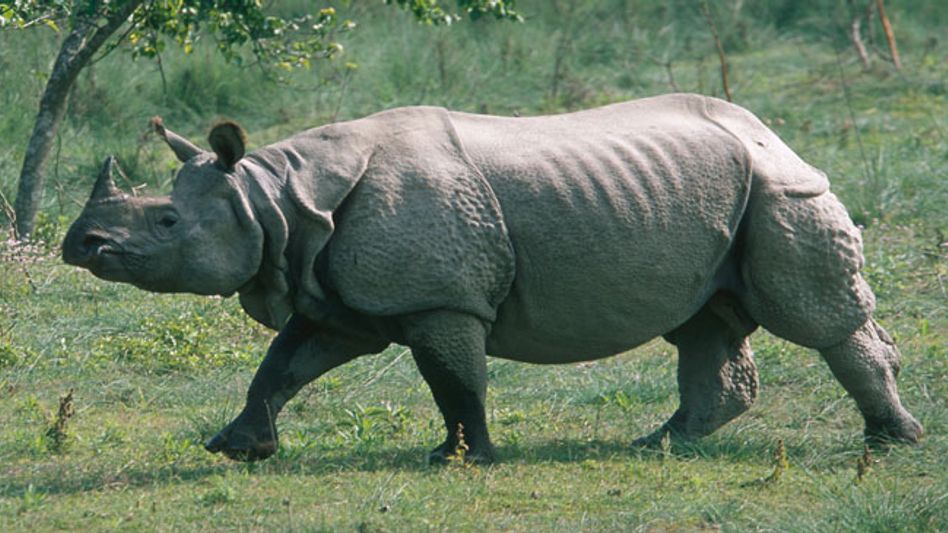Environment journalists welcome disposing of rhino horns but only the real ones!
Asia Pacific Forum of Environmental Journalists (APFEJ) welcomes the decision of Assam government’s forest department to dispose the rhino horns which are in the stock of the state treasury to discriminate the message that it does not carry any aphrodisiac quality.
 Representational image
Representational imageGuwahati: Asia Pacific Forum of Environmental Journalists (APFEJ) welcomes the decision of Assam government’s forest department to dispose the rhino horns which are in the stock of the state treasury to discriminate the message that it does not carry any aphrodisiac quality.
However it has also cautioned the government of disposing fake horns instead of the real ones. Assam’s rhinos are poached for its horns and sent to markets in Myanmar China and many others as a section believes that it aphrodisiac quality.
“There are ample scopes for apprehension that with the opportunity many fake rhino horns would be disposed and those might be smuggles into international market. Need not to mention that the rhino horns, because of the superstition (linked to Viagra), can fetch a million dollar in the illegal markets spread across east Asia,” said a statement issued by the journalists’ forum, head quartered in Dhaka.
It may be mentioned that the environment and forest department of Assam has started a process to verify over 2,500 rhino horns seized from poachers, smugglers or extracted from dead animals over the last four decades.
The State wildlife warden Amit Sahai informed by a media statement that the verification process of rhino horns in the districts of Kamrup, Barpeta and Morigaon were already completed. Sahai also informed that the forest department prefers to dispose of most of the rhino horns on India’s National Elephant Appreciation Day, 22 September.
The chief wildlife warden MK Yadava declared that around five percent of those horns would be preserved for education, awareness and scientific purposes. However, he admitted that the department would take a final decision after a public hearing scheduled for 29 August.
“Officially known as the greater one-horned rhinoceros and found primarily in India and Nepal, the rhinos are listed as vulnerable on the IUCN red list. Assam in northeast India alone gives shelter to over 2650 one-horned rhinos in its forest reserves. World famous Kaziranga National Park is known for its more than 2,400 rhinos along
with other precious wildlife,” added the APFEJ statement, released exclusively to media outlets in the Asia Pacific region.
“One can remember that Assam government constituted a rhino horn verification panel in the middle of 2016 amidst the allegations surfaced that fake horns were being used to replace the real ones in the government treasuries. During the process a total of 2,020 horns were reportedly found in various State treasuries,” said APFEJ president
Quamrul Islam Chowdhury and secretary Nava Thakuria, adding that the forest department should make its stand clear before setting the final procedure.
Copyright©2025 Living Media India Limited. For reprint rights: Syndications Today









